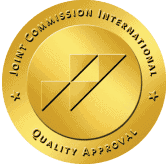What is Detoxification?
Detoxification is the process of clearing harmful substances from your system while managing the physical and emotional symptoms of withdrawal. It’s often the first step in recovery, providing a safe and supportive environment where your body can begin to heal.
With medical supervision, detox helps ease discomfort, reduce risks, and prepare you for the next phase of treatment. Detoxification isn’t just about clearing your system—it’s about setting you up for success in your recovery. With professional care and compassionate support, clients successfully detox and move to the next stages of treatment.
What to Expect During The Detox Process
Starting your recovery journey at a trusted treatment center involves several important steps designed to ensure your safety and comfort during substance abuse treatment. From the initial assessment to ongoing care, the process is tailored to meet your unique needs, including those related to alcohol addiction treatment programs and addressing co-occurring disorders.
Initial Assessment
Your recovery begins with a comprehensive evaluation by medical professionals, including doctors, nursing staff, and other medical professionals. This includes a review of your substance use history, physical health, and any mental health issues. For those with a substance use disorder, this step ensures that your care plan addresses both addiction and underlying conditions like anxiety or depression.
Medical Supervision
Throughout the detox process, you’ll be under 24/7 supervision by skilled professionals. Whether you’re undergoing detox or treatment for other substances, this phase focuses on safely managing withdrawal symptoms to provide a pain-free detoxification experience and reduce risks.
Symptom Management
Managing withdrawal symptoms is a crucial aspect of detox. If needed, medication-assisted treatment will be part of your personalized care plan for a successful detox. Healthcare providers may use medications to ease discomfort, especially for those detoxing from prescription drugs or alcohol. These interventions create a stable environment, helping you focus on the next steps in your addiction recovery journey.
Supportive Care
Beyond physical care, emotional and psychological support play an important role in behavioral health treatment. During detox, you’ll have access to group support, evidence-based therapies, and resources to start building the skills you need for long-term recovery. This holistic approach ensures you’re prepared to transition into intensive outpatient treatment or other addiction treatment programs.
By choosing a reputable treatment center, you’re setting yourself up for success in overcoming addiction and actually staying sober. Detox is just the first step in a comprehensive recovery program designed to provide evidence-based care that supports long-term sobriety.
What Happens After Medical Detoxification?
After completing medical detoxification, the next phase of recovery involves transitioning into a structured treatment program tailored to your unique needs. These programs, offered at rehabs, address the physical and emotional challenges of having an active addiction.
Before starting one of these treatment options, you’ll work with the entire staff (therapists, counselors, case managers, medical personnel, etc.) to create a personalized recovery plan that aligns with your treatment goals and circumstances. This process often includes a thorough assessment of your physical health, mental well-being, and substance use history to determine your required level of care and the appropriate addiction treatment services for you or your loved one.
Residential Treatment
For those requiring intensive support, residential treatment provides 24/7 care in a safe, structured environment. These programs include health care services such as individual, group, and family therapy to help rebuild trust and connection. Many facilities also offer amenities like private rooms, recreational therapies, and case management services to enhance comfort during recovery. This immersive approach is often a turning point for individuals working to overcome drug and alcohol addiction as they begin to acquire the necessary tools to achieve long-term recovery.
Intensive Outpatient Program (IOP)
For individuals seeking recovery while managing responsibilities like work, school, or family, intensive outpatient programs provide a flexible yet structured approach to care. These programs offer a combination of evidence-based therapies, holistic therapies, and skill-building sessions designed to help you address addiction and maintain progress.
Unlike inpatient programs, IOP allows you to continue living at home, offering the freedom to integrate your recovery into your daily life. With regular in-person sessions led by experienced professionals, you’ll receive the guidance and accountability needed to build coping strategies, strengthen relationships, and work toward lasting sobriety.
Partial Hospitalization Programs (PHP)
A partial hospitalization program is ideal for individuals who require more structure and support than an intensive outpatient treatment program but do not need the around-the-clock care provided in inpatient treatment. PHP offers a full day of comprehensive services, including individual therapy, group therapy, holistic services, educational workshops, and relapse prevention services. At the end of each day, participants return home or to a sober living environment, giving them the chance to practice newly learned skills in a real-world setting.
Start Your Recovery
Are you ready to take the next step toward a healthier, addiction-free life? Assure Recovery Center can help. Whether you’re seeking support for yourself or a loved one, we’re here to provide care designed for long-term healing and a better life.
While we do not offer detox programs at our recovery center, we can refer you to a trusted rehab in the area to carry out this level of care. The compassionate team at our nationally accredited rehab has helped countless clients be placed in detox, and we’re proud to be a turning point for many on their journey to lasting sobriety.



